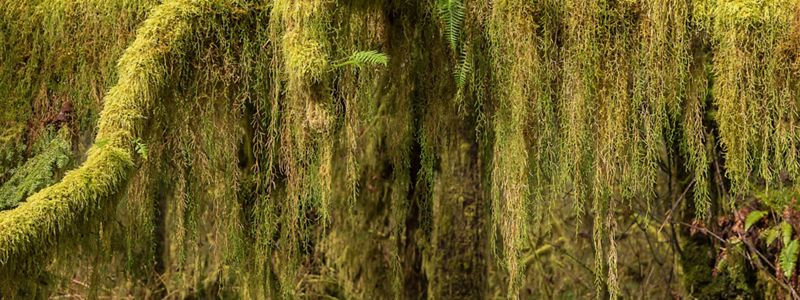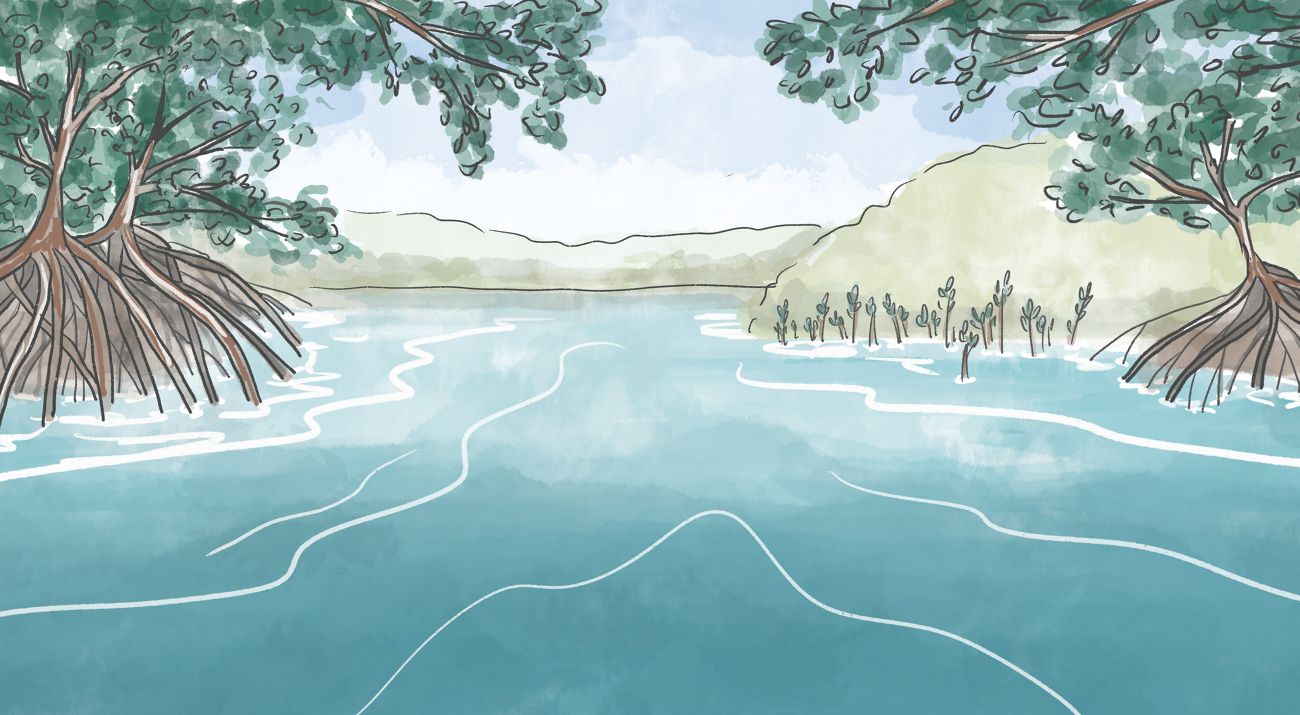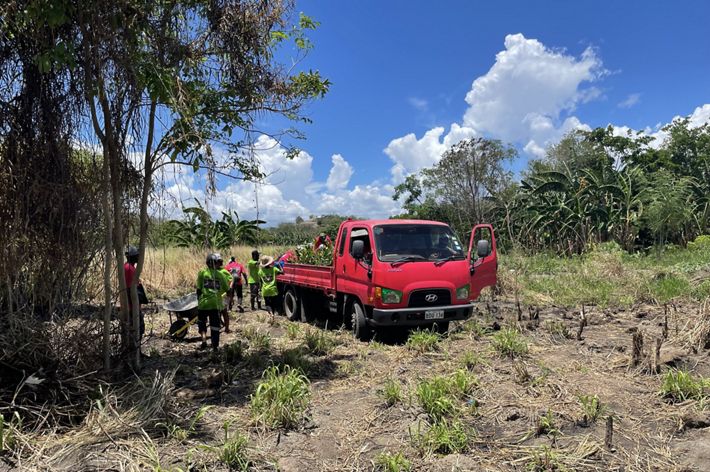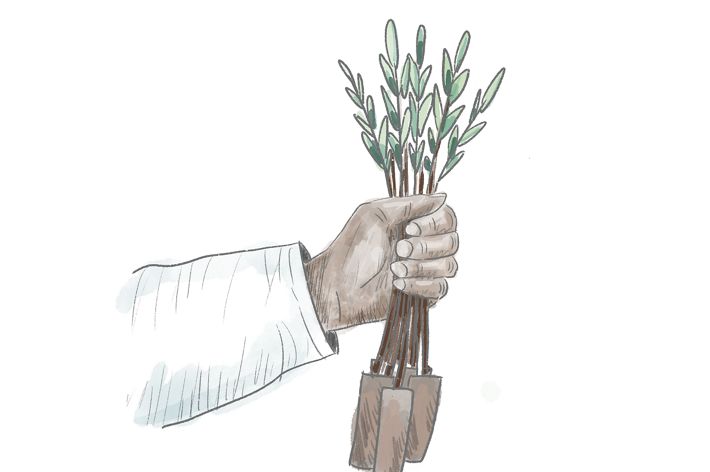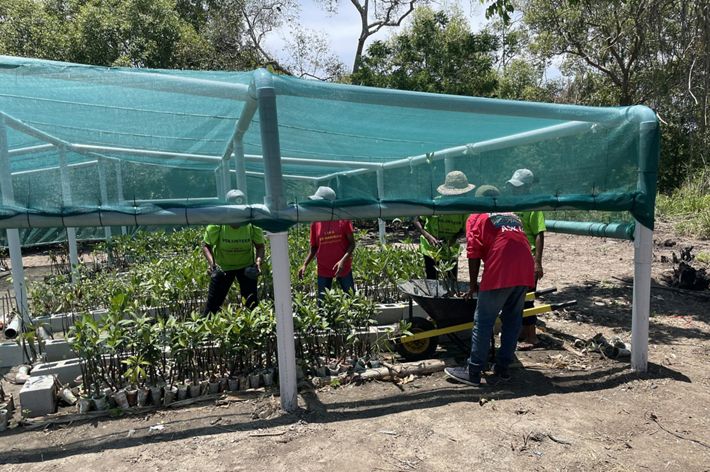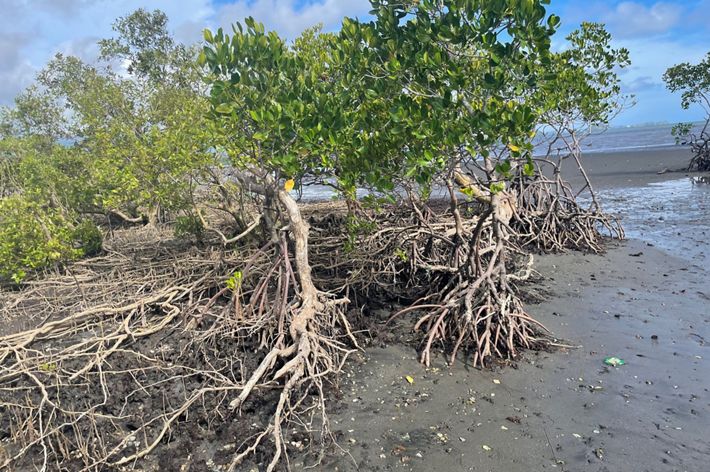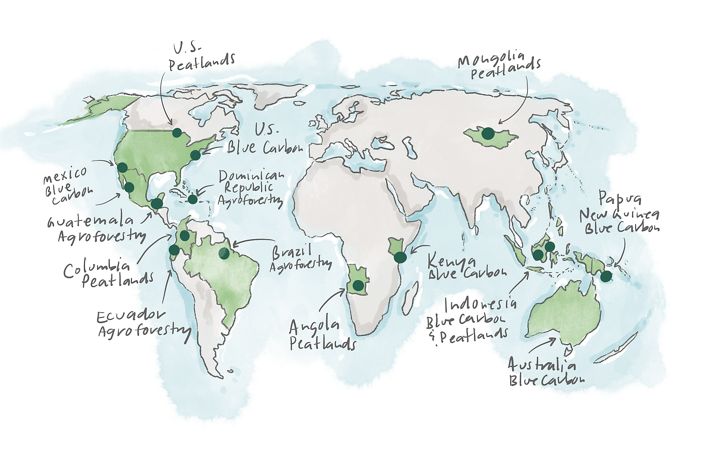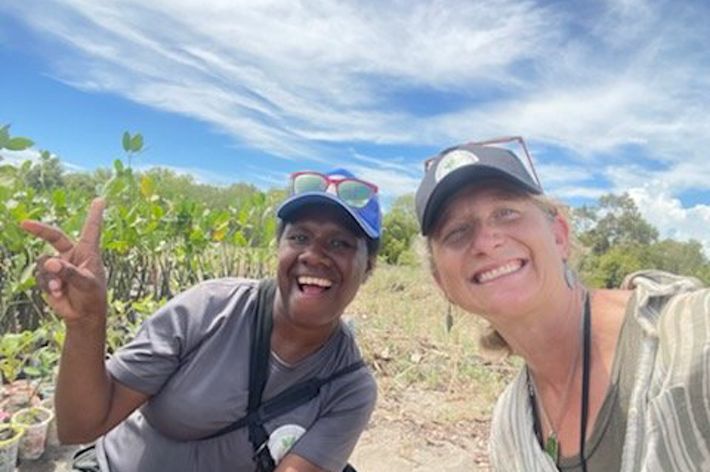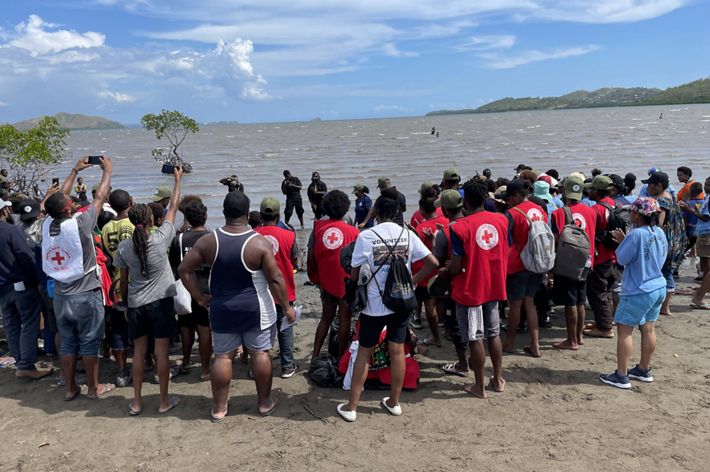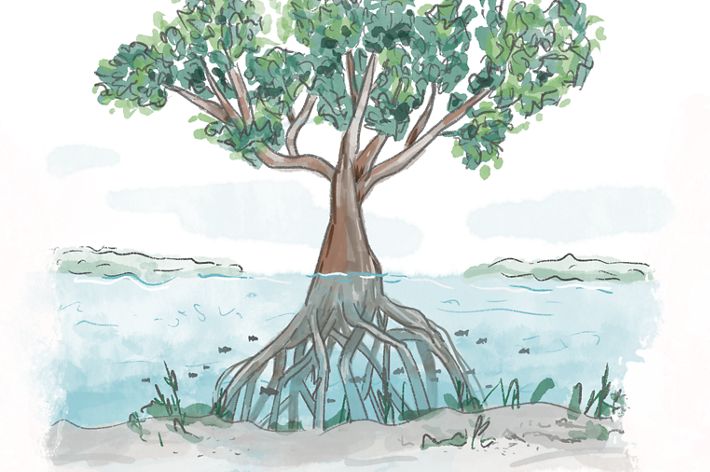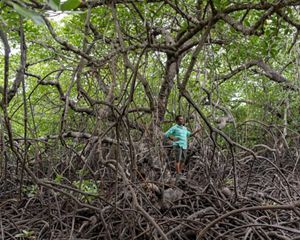A Fellowship for Nature-Based Solutions to Climate Change
by Dr. Ailene Ettinger, Quantitative Ecologist, Coda Fellow, Natural Climate Solutions Prototyping Network
My eyes burned with sweat as I peered up at the blazing sun, wondering how much hotter it was going to get. The answer was A LOT hotter; it was only 9 am! I paused briefly to take a swig of water and went back to unloading mangrove tree seedlings from the back of the pick-up truck parked nearby.
I reached for a seedling from the truck, then handed it to Zena, who handed it to Joshua, who passed it to the next person down the line until the seedling was resting on the beach next to hundreds of others we had already unloaded, ready to be planted later that day. Under the direction of mangrove scientist Mazzella Maniwavie, our assembly line worked quickly and smoothly, until the truck was fully unloaded. After a brief, celebratory chorus of cheers and hoorays, it was driven back to the propagation house to refill with another round of seedlings—eight more times. It seemed like a never-ending task.
The truth is, the hard work had begun months earlier, when a dedicated team from The Nature Conservancy’s Papua New Guinea (PNG) office began planning this mangrove restoration project. The project has involved extensive community outreach and engagement and many hours of volunteer help, in addition to the consistent dedicated work of TNC staff in PNG, who are leading the effort to restore the Dogura mangrove forest, located 30 minutes outside Port Moresby, the capital city of PNG.
I was a relatively recent addition to the project, visiting PNG from my home in Seattle (where it was 45° F/7° C the day before I flew to PNG), and where I am the quantitative ecologist for the Washington Chapter of The Nature Conservancy. This trip was part of my internal TNC fellowship with the Natural Climate Solutions Prototyping Network.
Natural Climate Solutions (NCS) provide climate change mitigation via conservation, restoration and sustainable management of forests, wetlands, grasslands and agricultural lands in ways that are consistent with biodiversity conservation and human rights. The Nature Conservancy’s NCS Prototyping Network is comprised of 15 TNC projects across the world that are using NCS interventions in peatlands, coastal wetlands and agroforestry systems.
The Network aims to facilitate adoption of NCS by filling critical knowledge gaps around climate change mitigation outcomes and how to achieve them, in systems where uncertainty is high and additional data may help with conservation decision making. I primarily support four of these project teams, located in Minnesota, Mongolia, Angola and PNG.
Leading up to this trip, I've been working virtually with Mazzella, Sara Leavitt, deputy director of TNC’s Global Natural Climate Solutions Science and other members of TNC's Natural Climate Solutions team. We've designed a mangrove restoration experiment that will provide much-needed foundational research as the restoration planting is implemented in PNG's first marine protected area, Bootless Bay.
The experiment, combined with additional field measurements and analyses, will help to answer questions such as: what are the most effective planting arrangements for mangrove restoration, and how much carbon-dioxide is taken out of the atmosphere when mangroves are restored?
Beyond the mangrove restoration experiment, another key component of the PNG team’s NCS Prototyping work involves piloting blue carbon market-based solutions that benefit communities in PNG. Blue carbon is used to describe the carbon captured and stored in coastal systems like salt marsh, sea grass and mangrove forests. Increasing carbon storage and reducing emissions from degraded soils via restoration can help reduce the effects of climate change, and market-based approaches have been proposed as one way to scale up the funding for and implementation of NCS, when deployed appropriately.
In PNG, these efforts build on the Mangoro Market Meri (MMM, meaning Mangrove Market Women) program, which centers women in the sustainable management of PNG mangroves. TNC has been supporting the women of MMM by helping them develop their business and conservation ideas and linking them to larger-scale economic benefits.
My visit to PNG coincided with TNC's World Mangrove Day events in PNG, which included volunteer and university student training in mangrove ecology and restoration, officially launching two community-run mangrove nurseries, and a community beach cleanup and mangrove restoration planting event attended by hundreds of people. Participants planted nearly 1,000 mangrove seedlings in a area that has lost 49% of the mangrove area since 2002. The loss of mangroves has devastating effects, as mangrove forests sequester large amounts of carbon, in addition to serving as nurseries for juvenile fish, buffering human settlements from coastal storm surges and supporting food security and livelihoods for many communities.
Witnessing and participating in TNC's conservation work in this new cultural context has been an incredible experience of learning and building relationships. I'm grateful for the amazing people I met in PNG. Felix is a former policeman and leader in the coastal village of Tubusereia, who began planting and propagating mangroves after his retirement. He shared his incredible story as part of World Mangrove Day, beginning with his birth literally in the mangrove forest outside his family home and continuing to him sharing his passion for mangroves and their restoration with the next generation, including his grandchildren, one of whom is named Avicennia, after a common mangrove tree species, Avicennia marina (White mangrove).
I have been consistently inspired by the dedication of Mazzella, MMM and the rest of the PNG team, their partners and the communities in which they work. PNG is one of the most culturally and biologically diverse countries on the planet, and today the country experiences carbon colonialism from western companies, in addition to climate change and other severe threats to mangroves and forests. Despite these immense challenges, TNC’s team in PNG demonstrates unwavering dedication to community-centered conservation that benefits people and nature in their country.
We managed to get those trucks unloaded, and with the help of hundreds of people, planted nearly 1,000 trees before the sun set that day. Of course, the work didn’t end there—the team continues to monitor seedling survival and are propagating new seedlings to expand their restoration efforts. I am convinced that tackling the challenges posed by climate change requires the kind of commitment to working hard together that I experienced with the PNG team.
We Can’t Save Nature Without You
Sign up to receive monthly conservation news and updates from Washington. Get a preview of Washington's Nature News email.
